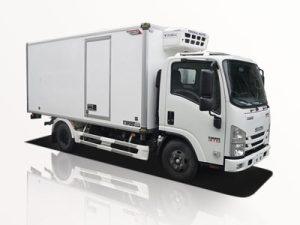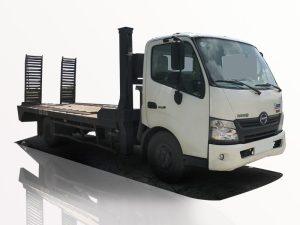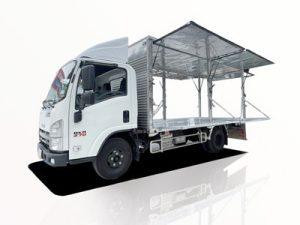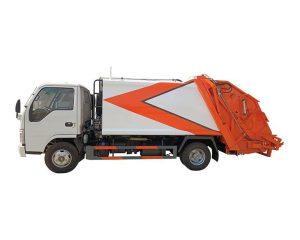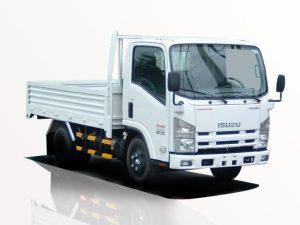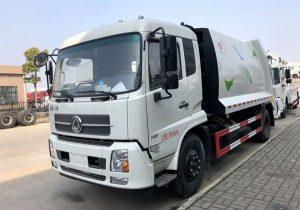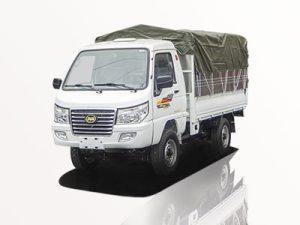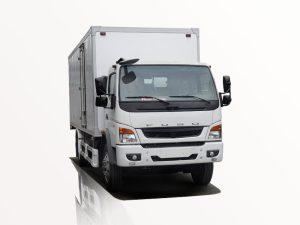Monday to Saturday - 8:00 -17:30
What is a Pumper Truck? A Comprehensive Guide
Introduction
A pumper truck is an essential vehicle in firefighting, construction, and various industrial applications. These trucks are designed to transport and deliver liquids, primarily water, to the scene of an emergency or a construction site. Understanding the functionality, types, and applications of pumper trucks can significantly influence their efficiency and effectiveness in critical operations. In this article, we will explore everything you need to know about pumper trucks, including their components, maintenance tips, and much more.
Understanding the Basics of Pumper Trucks
1. What is a Pumper Truck?
A pumper truck, sometimes referred to as a fire truck, is a vehicle equipped with a pump that helps to move water from a source—like a hydrant, tank, or lake—through hoses to extinguish fires. In construction, pumper trucks are used to supply water to job sites for mixing concrete or for dust control. These versatile trucks can adapt to different situations due to their design and equipment.
2. Historical Background
Pumper trucks date back to the early 18th century, with predecessors being horse-drawn water carts. The evolution of steam and internal combustion engines led to the development of motorized pumper trucks. Today, they are indispensable in fire departments worldwide and have advanced to include sophisticated features like computerized controls and enhanced water pressure capabilities.
Components of a Pumper Truck
1. The Chassis
The chassis forms the base of the pumper truck. It is typically built on a robust frame that can support heavy loads. Most modern pumper trucks are made from durable materials, such as stainless steel or aluminum, to withstand the elements.
2. The Water Pump
The water pump is the heart of a pumper truck. It is responsible for drawing in water and distributing it through hoses. There are various types of pumps, including centrifugal and positive displacement pumps. The capacity of these pumps is measured in gallons per minute (GPM), affecting how quickly water can be delivered to the fire scene.
3. Water Tank
Most pumper trucks feature a built-in water tank, which can hold thousands of gallons of water. This tank provides an immediate supply during initial firefighting efforts, especially in areas where access to hydrants is limited. Tank capacities typically range from 500 to 3,000 gallons.
4. Hose Reels and Storage
Hose reels are integral to a pumper truck. They often come equipped with multiple sections of fire hose, allowing firefighters to quickly deploy hoses for fire suppression. Storage compartments on the truck are designed to hold additional equipment, such as nozzles, tools, and rescue gear.
5. Controls and Monitoring Systems
Modern pumper trucks include sophisticated controls that help firefighters manage water flow, pressure, and various other functionalities. Many also feature monitoring systems for real-time tracking of water usage during firefighting efforts.
Types of Pumper Trucks
1. Fire Engine
A fire engine is the most common type of pumper truck. It is fully equipped to handle firefighting duties, carrying water, hoses, and firefighting personnel on board. Fire engines are often classified based on their pump capacity, typically between 1,000 GPM to 2,500 GPM.
2. Wildland Fire Engine
Wildland fire engines are specifically designed to combat fires in rural, grassland, and forested areas. These vehicles are lightweight, allowing easier navigation through rough terrain, and often include specialized tanks for carrying water, foam, and other firefighting materials.
3. Quint
A quint is a hybrid vehicle that combines the features of a pumper and a ladder truck. With a pump, a water tank, and a ladder, it serves multiple functions at the scene of a fire, making it a valuable asset for firefighting operations in urban areas.
Applications of Pumper Trucks
1. Firefighting
The primary application of pumper trucks is firefighting. They are dispatched to extinguish fires in residential and commercial structures, industrial sites, and wildland fires. Their ability to deliver high volumes of water quickly provides a critical advantage in combating flames.
2. Construction Sites
Pumper trucks are also utilized in construction settings for various purposes, such as mixing concrete and controlling dust. They can transport water directly to temporary tanks or offer direct water access for construction activities.
3. Emergency Medical Services (EMS)
Some pumper trucks are equipped to provide initial medical support, carrying essential medical equipment and supplies. They may serve as mobile command centers during emergency situations, assisting EMS teams on-site.
Key Features and Benefits of Pumper Trucks
1. Versatility
One of the most significant advantages of pumper trucks is their versatility. They can operate in different environments, making them suitable for various emergency situations. From fires to environmental spills, pumper trucks are adaptable to numerous roles.
2. High Capacity
With the ability to carry large amounts of water, pumper trucks can sustain operations for extended periods. This is crucial for effective firefighting and construction applications, where access to water sources may be delayed.
3. Quick Response
The design of pumper trucks emphasizes speed and efficiency. Firefighters can quickly access equipment, deploy hoses, and connect to water sources, which is vital in emergency situations where every second counts.
Maintenance of Pumper Trucks
1. Regular Inspections
To ensure optimal performance, pumper trucks should undergo regular inspections. This includes checking hoses, pumps, water tanks, and other critical components. Inspections help identify potential issues before they become serious problems.
2. Routine Maintenance
Routine maintenance tasks include changing oil, replacing filters, and ensuring proper fluid levels. Proper maintenance extends the lifespan of pumper trucks and ensures reliability when they are needed the most.
3. Testing Equipment
Each component of a pumper truck should be regularly tested to guarantee efficiency, especially fire pumps. Testing includes flow tests to measure pump performance and ensure that water pressure meets operational standards.
Practical Examples and Tips for Choosing the Right Pumper Truck
1. Determine the Application
Identify the primary use of the pumper truck. If it is for firefighting in urban areas, consider a fire engine. For wildland firefighting, a wildland fire engine may be more suitable.
2. Evaluate Equipment Needs
Consider the equipment you might need, such as hose reels, ladders, or specialized firefighting systems. Ensure that the truck you choose can accommodate all necessary equipment.
3. Assess Water Capacity
Water capacity is crucial. For larger operations, a pumper truck with a higher GPM rating and a larger water tank will be more effective. Balance this against the maneuverability needed for your specific usage scenarios.
FAQ Section
1. What is the average cost of a pumper truck?
The cost of a pumper truck can vary widely depending on its size, specifications, and features. On average, a new fire engine may cost anywhere from $300,000 to $1 million or more, while used models may be available at lower prices.
2. How long does a pumper truck typically last?
With proper maintenance, pumper trucks can have a lifespan of 15 to 25 years. The lifespan depends on usage, maintenance, and advancements in technology.
3. Can pumper trucks be customized?
Yes, many manufacturers offer customization options for pumper trucks. Departments can choose specific chassis, pump sizes, tank capacities, and additional equipment based on their unique needs.
4. Are pumper trucks only used for firefighting?
While pumper trucks are primarily designed for firefighting, they are also used in construction, emergency medical services, and other applications that require water delivery or high-pressure water flows.
5. What training do firefighters receive on pumper trucks?
Firefighters receive specialized training on the operation of pumper trucks, focusing on pump operations, hose deployment, maintenance procedures, and safety protocols to handle emergencies effectively.
6. Where can I find used pumper trucks for sale?
Used pumper trucks can often be found through auctions, specialized dealers in fire equipment, and platforms that specialize in municipal surplus equipment. Always ensure proper inspections before making a purchase.


